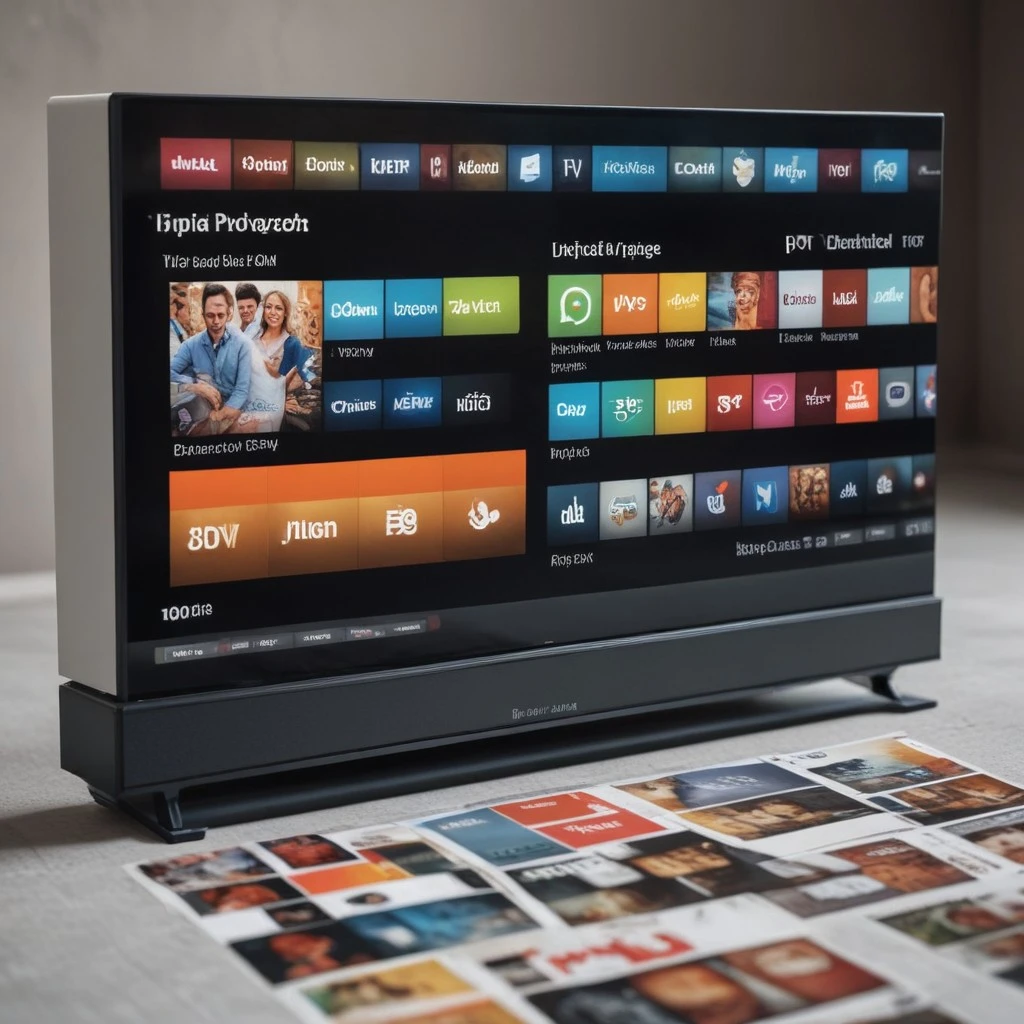How can IPTV be used to stream content to remote locations?
Stream Content Remotely with IPTV: Ultimate Guide to Remote Streaming Success

Introduction
In the ever-evolving world of digital media, the ability to stream content remotely with IPTV has become a game-changer. Whether you’re at home, on the move, or in a remote location, IPTV technology provides a reliable and efficient way to stream content remotely with IPTV. From live broadcasts to on-demand movies and shows, the flexibility to stream content remotely with IPTV ensures that your entertainment options are limitless. In this guide, we’ll explore the best practices and tips for maximizing your experience as you stream content remotely with IPTV, making sure you stay connected to the content you love, wherever you are.
Discover our IPTV service offers
Understanding IPTV Technology
To stream content remotely with IPTV, it’s essential to understand what IPTV is and how it works. IPTV, or Internet Protocol Television, delivers television content over the internet rather than through traditional satellite or cable formats. This allows users to stream content remotely with IPTV from any location with an internet connection, offering unparalleled flexibility and convenience.
Why Stream Content Remotely with IPTV?
The ability to stream content remotely with IPTV offers significant advantages. Whether you’re a frequent traveler, live in a rural area, or simply want the convenience of accessing your favorite shows anywhere, IPTV provides a robust solution. You can stream content remotely with IPTV on various devices, including smartphones, tablets, laptops, and smart TVs, making it an ideal choice for those who want to stay connected to their entertainment no matter where they are.
Setting Up IPTV for Remote Streaming
To stream content remotely with IPTV, you’ll need to ensure that your devices are properly set up. Start by selecting a reliable IPTV service provider that offers high-quality streaming options. Once you’ve chosen your service, the next step is to configure your device. Whether you’re using a smartphone, tablet, or smart TV, there are apps and software designed specifically to help you stream content remotely with IPTV efficiently.
Optimizing Your IPTV Experience
To get the most out of your ability to stream content remotely with IPTV, consider the following tips:
-
Stable Internet Connection: A strong, stable internet connection is crucial when you stream content remotely with IPTV. This ensures smooth playback without buffering or interruptions.
-
Choose the Right Device: Depending on where you plan to stream content remotely with IPTV, choose a device that meets your needs. Smartphones and tablets are great for on-the-go viewing, while smart TVs offer a more immersive experience at home.
-
Explore IPTV Features: Many IPTV services offer additional features such as DVR capabilities, live TV, and on-demand content. Make sure to explore these options to fully utilize your ability to stream content remotely with IPTV.
Understanding IPTV Technology Imoprtance of internet connetion fort ITPV
We’ve mentioned before on our IPTV blog that IPTV needs an internet connection to work. However, having a one-of-a-kind experience when using these services depends on other factors, such as the quality of that internet connection and the device where you’ll stream IPTV content.
How does IPTV work ?
For the user, using IPTV is extremely simple. All you need is an internet connection with sufficient bandwidth and a compatible system. In France, a preferred means of accessing IPTV is often the TV box from your internet service provider (ISP). The television experience thus remains centralized within the operator’s services. Advanced features like saving and resuming a program from the beginning are usually offered.

Otherwise, a Smart TV, a TV box (Nvidia Shield, Xiaomi Mi Box, Apple TV, etc.), a TV dongle (Fire TV Stick), a computer, a tablet or a smartphone provide access to IPTV-based services. . Today, even game consoles, home or portable (PlayStation, Xbox, etc.) are used for these purposes. On most video streaming platforms, it is necessary to create an account to start viewing content. Some also require a paid subscription.
What is the diffence between IPTV and Normal television
First of all, because companies that offer IPTV reserve an amount of bandwidth, this ensures that the transmission of channels is always of good quality. However, this is not always the case with traditional television which, due to interference or weather problems, can suffer cuts or loss of signal quality.
In addition, with IPTV, you are no longer dependent on a cable to receive the signal. This means that you can watch TV from any device: smartphone, tablet, computer… So you no longer have to stay in the living room to enjoy your favorite shows.
Another advantage of IPTV is the ability to record programs, save the content to the set-top box and rewind live programs. Traditional television does not allow its functionalities, it simply offers to watch the live broadcast of each channel.
ITPV Best practices and Tips for remote content Streaming
To optimize your IPTV system for remote content delivery, you must plan and design your network carefully, taking into account network topology, bandwidth capacity, devices, delivery methods, formats and codecs, as well as security and regulatory requirements. It is also important to regularly monitor and troubleshoot your IPTV network using the right tools. Optimize and regularly update your IPTV network with techniques such as network optimization, load balancing, caching or CDN services. Additionally, it is essential to educate and support your IPTV users by providing them with clear and comprehensive information, instructions and guidelines, as well as technical and customer support.
How to choose your iptv subscription
The choice of IPTV subscription depends on the user’s personal needs and preferences. To make your choice easier, several elements should be taken into account:
- Content: it is important to check that the IPTV service offers channels and programs that the user wants to watch. Some services offer a wide selection of channels, others a more limited number.
- Image quality: If the user has a high definition or 4k television, it is important for them to ensure that the IPTV service offers image quality suited to their equipment.
- Compatibility: It is necessary that the IPTV service is compatible with the equipment; television, smartphone, tablet, computer or decoder.
- Reliability: It is important to look for opinions and comments from other users to find out if the IPTV service is reliable and stable (whether the playback of films or series is smooth, for example).
- Security: You must pay attention to the legality of the IPTV service and be certain that it does not present risks to the computer security or confidentiality of the user.
- Price: There are many IPTV subscriptions at different prices. Comparing the different offers also allows you to choose the one that best suits your budget.
Conclusion
In conclusion, the flexibility to stream content remotely with IPTV has revolutionized the way we access media. By understanding how to set up and optimize your IPTV service, you can ensure a seamless and enjoyable remote streaming experience. Whether you’re at home, traveling, or in a remote area, you can always stream content remotely with IPTV and stay connected to the content you love.
Don’t hesitate to subscribe today at IPStream4Yuu for the ultimate viewing experience!
This approach is supported by Neil Patel’s analysis on improving SEO through strategic linking